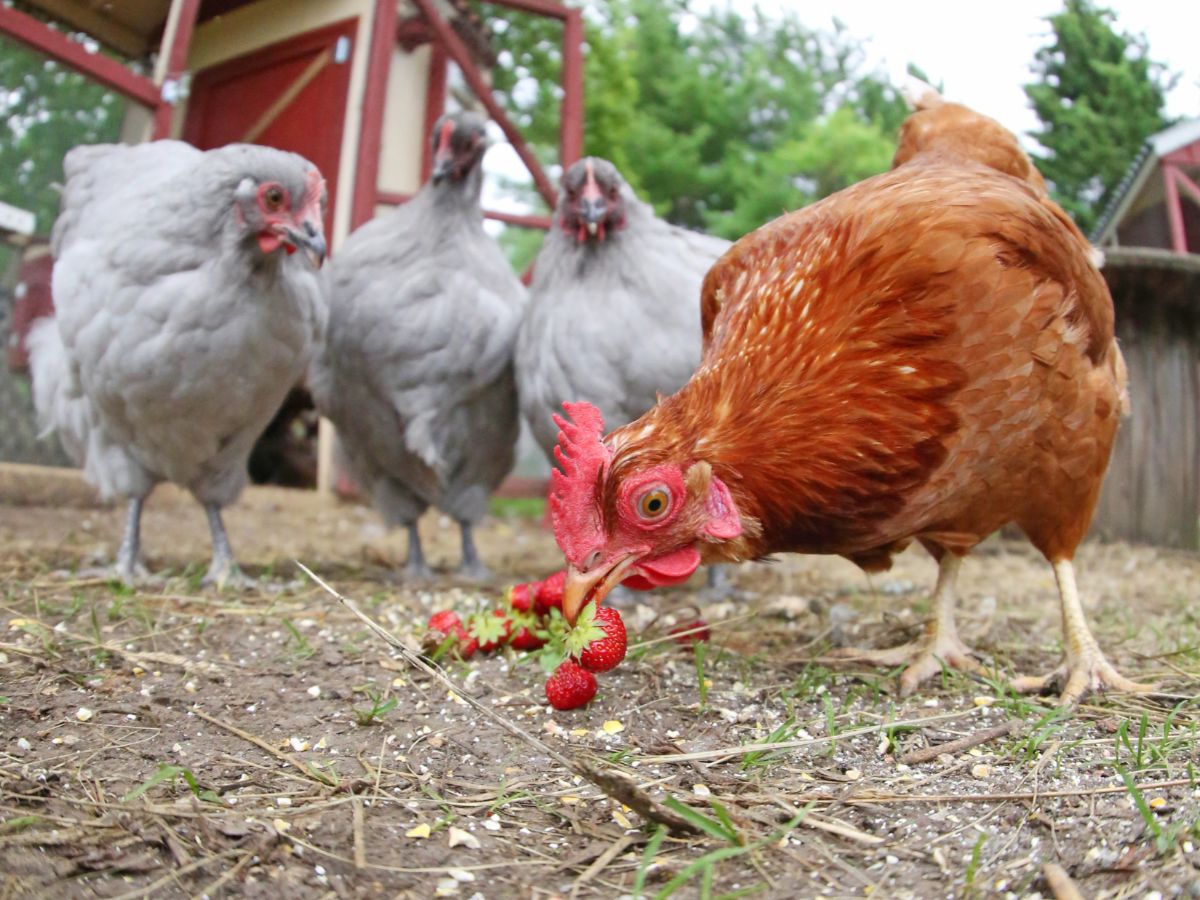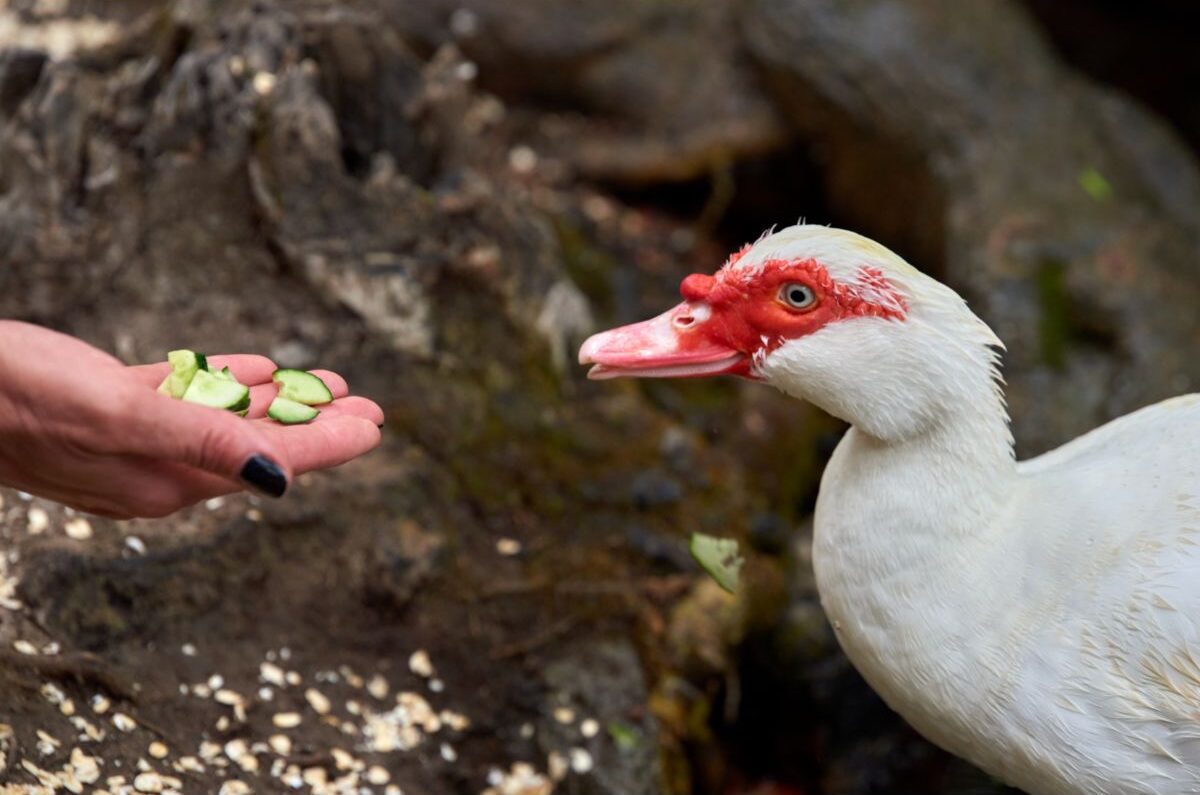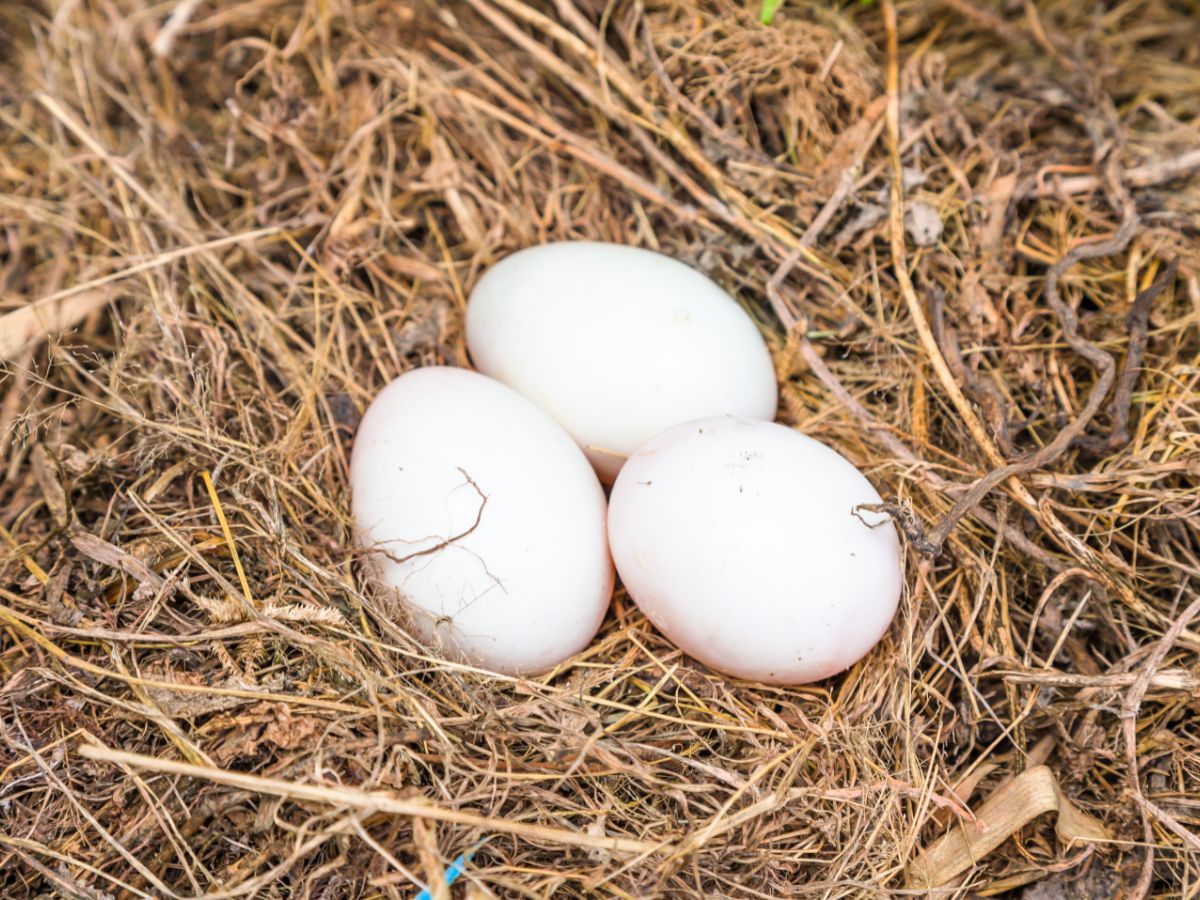Chickens are omnivores that naturally enjoy eating a varied range of foods – seeds and grains, worms and insects, leafy greens, vegetables, and fruits. Chickens can eat most fruits, but there are a few notable exceptions!
Fruits that chickens can eat are berries, pome fruits, melons, stone fruit, and tropical fruits like coconuts, bananas, mangoes, and papayas. Chickens cannot eat citrus fruits or avocado peels and pips (the flesh is fine). Fruit must not make up more than 10% of a chicken’s daily food intake.
If you are interested in diversifying your chickens’ diet, fruits are a great addition to their feed. Chickens can eat parts of fruits that humans cannot, like watermelon rinds and banana peels. They can turn your fruit scraps into rich compost!
Contents
What Fruits Are Safe To Feed Chickens?
Chickens can eat most types of fruit. These are all fruits that chickens can eat:
- Strawberries
- Blueberries
- Raspberries
- Cranberries
- Cherries
- Pomegranate
- Cantaloupe
- Honeydew melon
- Watermelon (even the rind!)
- Grapes
- Apples
- Apricots
- Plums
- Peaches
- Nectarines
- Bananas (peels and all)
- Bell peppers
- Chilis
- Coconut
- Kiwi
- Mango
- Papaya
- Pears
- Pineapples
While most people think of cucumbers, tomatoes, eggplants, pumpkins, and squashes as vegetables, in a botanical sense, they are actually a fruit. It is safe to give chickens any of these “vegetables.”
What Fruits Are Not Safe To Feed Chickens?
There are not many fruits that are dangerous for chickens to eat. Therefore, it is easy to remember which fruits not to give to your chickens. Citrus fruits and avocados are red flag foods for chickens.
Do not feed chickens:
- Oranges
- Lemons
- Limes
- Mandarins
- Grapefruits
- Avocado skins and pits
- Moldy or rotten fruits
Citrus fruits contain citric acid. It is thought that if chickens eat lots of citrus fruits, the high levels of citric acid can negatively impact their egg-laying because it reduces their bodies’ calcium absorption.
Avocado flesh is safe for chickens, but you should not feed them the skins and pips. They contain a compound called persin that is toxic to chickens at high levels.
Feeding chickens fruit that is overripe is fine, but never feed chickens rotten, spoiled, or moldy fruit. It can make them ill.
Chickens are a lot savvier than we give them credit for, and they seem to instinctively know what fruits they should not eat.
It’s not a disaster if an orange wedge or avocado pit in the kitchen scraps bucket makes it into the chicken run; they are highly unlikely to eat them.

How Much Fruit Can You Feed Chickens?
Fruits, veggies, and other table scraps should not make up a large portion of a chicken’s diet. Anything other than complete and balanced chicken pellets should be considered a treat.
Treats are only allowed to make up 10% of chickens’ daily food intake. The other 90% should be specially formulated chicken feed.
According to this 90/10 rule, if a chicken is getting a quarter pound or half a cup of feed per day, it is allowed to get 2 tablespoons of treats.
If you give chickens too many treats, they will not eat their pellets and can develop nutrient deficiencies.
The pellets contain all the nutrients they need to stay healthy, so it is important that they eat the right quantity of pellets each day.
When Can You Begin Feeding Chickens Fruits And Vegetables?
Baby chicks grow very rapidly, so their bodies require a lot of protein. They should only eat specially formulated chick feed to support their growth.
It is not good to feed hatchlings and small chicks any table scraps, fruits, or vegetables because these are much lower in protein than their feed.
You want to encourage chicks to eat as much protein as possible in the first few months of their development. Therefore, wait until chickens are 3 to 4 months old before giving them treats.
What Foods Are Safe For Chickens?
Other than fruits, you can feed chickens almost any type of vegetable, grain, cooked meat, and bread. However, these foods are also considered treats and must not exceed 10% of chickens’ daily food intake.
The following foods can be fed to chickens in moderation:
- Vegetables
- Meat
- Grains
- Cooked or raw oatmeal
You can feed chickens raw or cooked veggies. If you are giving chickens hard vegetables that are difficult for them to eat, like sweet potatoes or pumpkins, you should cook them.
Chickens love leafy greens like chard, cabbage, lettuce, kale, and spinach, and they enjoy broccoli, corn, peas, shredded carrots, squashes, pumpkins, sweet potatoes, and tomatoes.
Chickens have a voracious appetite for scraps of cooked meat. You must cut the meat into small pieces. Never feed chickens raw meat as it can make them sick.
Cooked grains, like leftover rice or barley, are fine to give to chickens.
What Foods Are Not Safe For Chickens To Eat?
Many foods are unhealthy or even toxic to chickens. Avoid giving chickens the following foods:
- Onions or garlic
- Raw potatoes
- Leftovers that are high in salt or sugar
- Highly processed foods
- Coffee grounds or coffee
- Chocolate
- Greasy food
Onions, spring onions, leeks, garlic, and chives are not toxic for chickens, but they give eggs a weird flavor. Avoid giving them any alliums.
Raw potatoes and potato peels contain a compound called solanine that is toxic to chickens. Also avoid tossing potato plants into the run for your chickens.
Very salty or sweet foods should not be given to chickens. Highly processed fast food must also not be given to chickens. If the food is unhealthy for you, it’s likely to be bad for your chickens too.
Coffee and spent coffee grounds should not be given to chickens because they contain caffeine.
Chocolate must not be fed to chickens as it contains a compound called theobromine, which is toxic to chickens.
Greasy foods and butter should not be given to chickens because it gives them a runny tummy.
Conclusion
Chickens are healthiest when they are fed a diet that includes a diverse range of foods. The main component of their diet should be specially formulated chicken feed and treats like fruits can make up 10% of their daily food intake.
Almost all fruits are safe for chickens to eat. The only ones to avoid giving to chickens are citrus fruits and avocado pits and skins.




